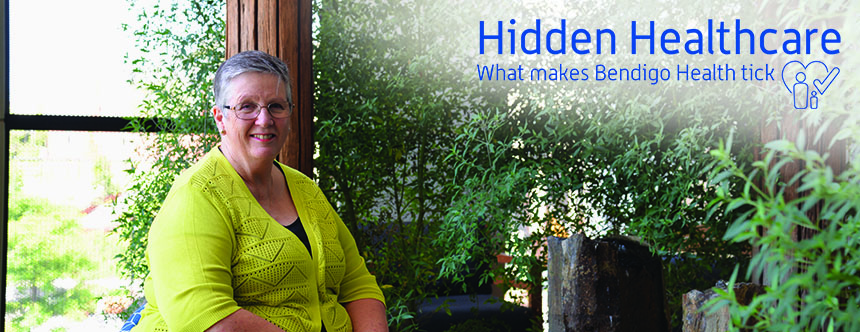 Anne Wieczorek believes her extensive medical background has helped her flourish as a pastoral carer.
Anne Wieczorek believes her extensive medical background has helped her flourish as a pastoral carer.
In a clinical environment where quality, results and problem solving abound, emotional and spiritual support is often hard to quantify.
Pastoral Carer Anne Wieczorek recalls approaching a grizzly farmer who had just been diagnosed with prostate cancer, not expecting much of an interaction.
After some peripheral discussion about the weather, the elderly man opened up on his diagnosis, family and innermost thoughts.
“I’ve not even told my wife that, I don’t know how I’ve told you,” he said to Anne at the time.
Those are the conversations and moments Anne believes are hard to quantify, but are rich in value.
“It’s so amazing how quickly people can open up and discuss significant things in their life,” Anne said.
Admittedly there’s a skill to it.
Anne, a midwife and nurse for 35 years, began pastoral care training in Melbourne after retiring in 2008 and initially struggled with the transition from clinical to spiritual care.
“I remember my first unit of clinical pastoral education at a Melbourne hospital, I walked into the patients rooms and the IV bag was nearly out the catheter bag was full and the emergency bell was out of reach. I had to put all of that in the back of my mind and just focus on the patient’s eyes, because I believe they are the window to the soul,” she said.
Anne’s extensive medical background has helped her flourish as a pastoral carer.
“I’ve got a great sense of how death, dying and birth works, I’ve lived and breathed it for 35 years, it’s in my veins,” she said.
Pastoral Carers are the objective, optional presence that provide emotional and spiritual support to patients or families across all areas of the hospital.
“It’s about being part of their journey and in an acute hospital setting it’s always an unwelcome journey,” he said.
Anne’s connections with patients and families have developed to the extent she’s been invited to do readings at funerals, but they can also take a personal toll.
“Some episodes maybe touch my own story, which is why imperative in this field that we have professional supervision,” she said.
Anne became the first pastoral supervisor in Bendigo in 2019, and last year ran her first clinical pastoral education session as she plans to encourage more people into the profession.
Bendigo Health has 40 people in the pastoral care team, which provided 2300 hours of care to 3500 patients, families, residents and staff in 2018-19.
A visit can range from a 10-minute introduction to the service to hours supporting a patient or family member.
Spiritual support is not strictly faith based, although Bendigo Health does have a number of pastoral carers of various religious denomination.

For more stories in our Hidden Healthcare series, click below.
Hidden Healthcare